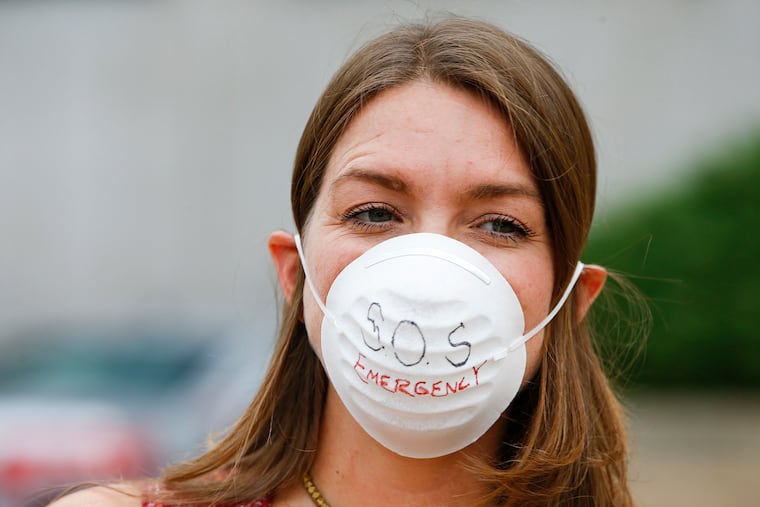'Cry when you get home’: Teachers need therapy to process the trauma of urban classrooms | Opinion
Nearly half of all teachers say that they experience high levels of stress, and it doesn’t take much to see how such stress manifests itself in Philadelphia.

The first time I realized something was deeply wrong with the state of the general mental health of teachers was during a meeting at the first place I taught, a South Philly school. It was a school no different from the many others I’ve spent time in: a substantial number of students with emotional distress, trying to be an important institution in a neighborhood desperate for them. At the meeting, a teacher was giving a short talk about managing workload and emotional distress, and I can remember none of it, with the exception of one line.
“Be brave for them here, and cry when you get home.”
What stays in my head is the cheerful, stoic tenor of it. The admission of subsuming emotional distress coupled with the painful, staid acknowledgment that the most a teacher can hope for is a moment to weep alone.
It’s nearly impossible to describe the emotional load that teachers shoulder. We are not just educators. We know the secrets of as many hearts as any priest; we put in as much actual work as any CEO; we can sustain unknowable exhaustion and spiritual burn, and we rise every day to serve.
But such devotion comes at a cost.
Nearly half of all teachers say they experience high levels of stress, and it doesn’t take much to see how such stress manifests itself in Philadelphia. Schools experience an astonishing level of teacher turnover in Philly; according an Inquirer report from earlier this year, several schools have cycled through more than 120 teachers over the course of seven years, from 2012 to 2018.
Considering the fact that a school can thrive only if it retains teachers and builds community, this is nothing less than a crisis, one that no amount of bonuses or teacher trainings can even hope to triage. Teachers need more than that.
They need therapists.
And they need them on campus.
It should not be a teacher’s burden to be brave and then cry at home. As a matter of fact and practicality, it can’t. No professional operation can hope to stanch turnover when its foremost means of stress management is sucking it up until it can be sucked up no more. No industry can survive if its most well-qualified workers are moments away from a nervous breakdown.
Teachers need release valves, and hashing it out with other teachers or sobbing when you get home can do only so much. We need professional help, just as any professional who shoulders so much trauma would.
Some school districts are growing more attuned to what teachers need beyond pencil sharpeners and prep periods. (I do need some prep periods though, please.) Mastery, the charter network that employees me, has given teachers mental health professional development sessions. This is a good start. What will probably be most beneficial is real, in-person psychology professionals that teachers can interface with in moments of doubt, fear, or exhaustion.
It may sound greedy to the uninitiated to ask for a serious financial commitment to the mental health of teachers. After all, the Chicago teachers’ union just this last week succeeded in guaranteeing that every school in its city will have a nurse, and here in Philadelphia, marquee schools like the Academy at Palumbo are quite literally falling apart, and others, like Ben Franklin High, are packed with cancer-causing asbestos.
But fixing infrastructure and environmental problems can do only so much. If teachers feel as though they can’t do their jobs -- if they feel as though they can’t sustain the emotional exhaustion, and that they are falling apart as they try to keep their heads above water.
We need help. Someone to talk to, someone who will listen, someone whose job is to make things just a little easier. The kind of help we give our students every day.
Quinn O’Callaghan is a freelance writer and English teacher. He tweets at @gallandguile and can be reached at qpocallaghan@gmail.com